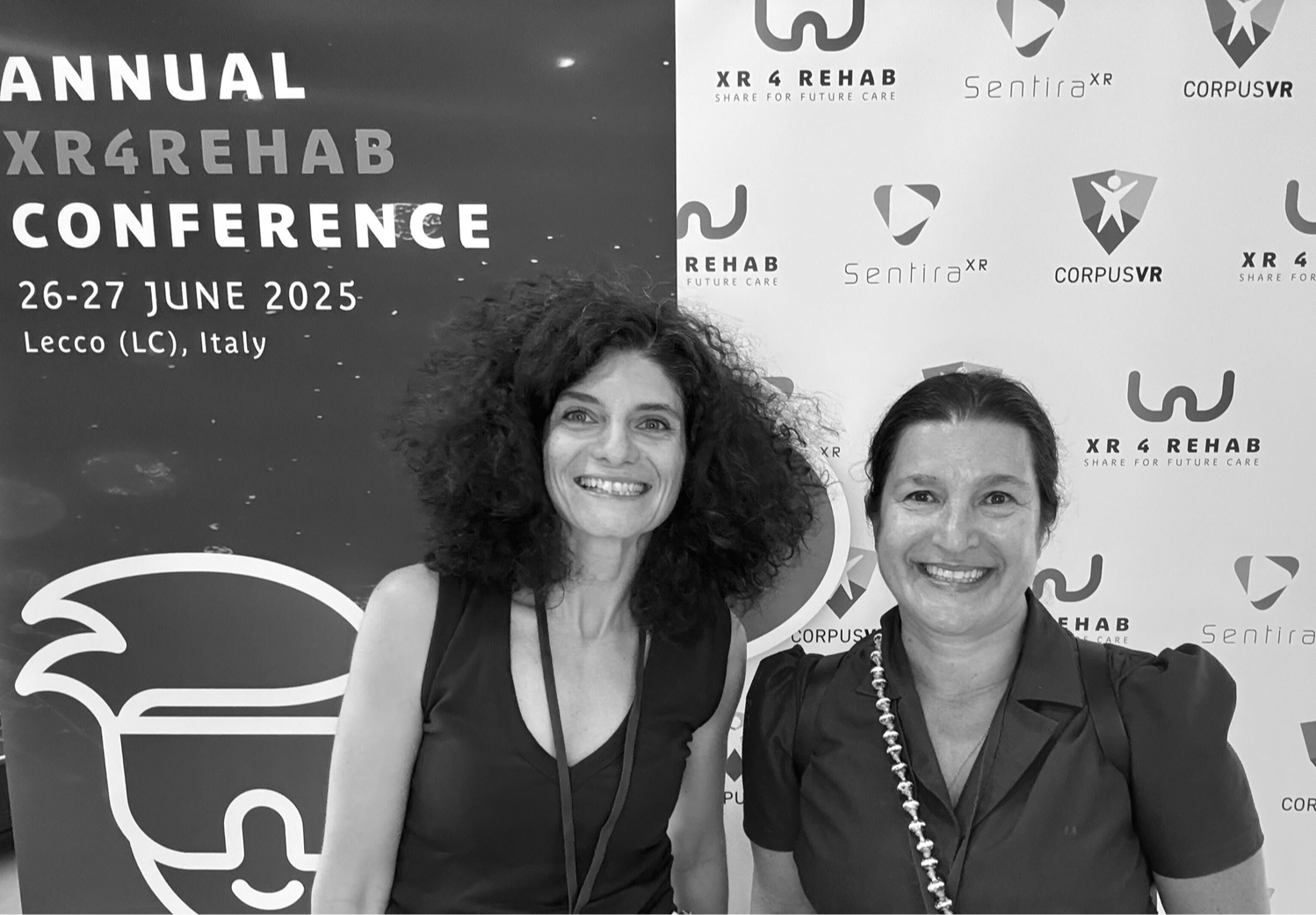Recently, our Co-founder Ema presented at “Rehab Reimagined”, a conference organised by VR4REHAB to bring together academics, practitioners, entrepreneurs and many other stakeholders to talk about the many promising opportunities for virtual reality and extended reality in rehabilitation healthcare.
Together with Stefania Serafin of Aalborg University, a leading expert on sound, Ema presented on “Expanding the Senses in Immersion”, a talk about expanding the boundaries of human-computer interaction beyond the dominant senses of sight and sound. Ema’s focus was on how the powerful sense of smell can be integrated into XR experiences to enrich the user experience. Attendees were treated to real-life examples of work and research exploiting this power to enrich immersive content.
In a 2021 study, the classic Bells Test test, most often used for assessing visual neglect in stroke patients, was implemented in a VR setting to assess how olfactory stimuli can enrich the VR experience for participants. The researchers used the results of their study to discuss how human-computer interaction can be enriched by smell, and how this in turn could be used for VR in a rehabilitation and assessment setting, specifically for patients with spatial attention deficits often found in neurological conditions or neurodevelopmental disorders. You can read more about this in the paper “May I Smell Your Attention” (Dozio, N. et al., 2021, Frontiers in Psychology).
Another example cited by Ema during the talk is the digital Smell Care Project. The importance of the sense of smell to our general wellbeing and quality of life received widespread public attention in the wake of the Covid-19 pandemic. With some sources stating that over 60% of patients who contracted the virus lost their sense of smell (“Long COVID Dispatches from the Front Lines”), and many of those suffering from Long Covid continue to experience a diminished ability to smell, it is little wonder. Regardless of Covid-19, it is estimated that around 20% of the general adult population in Europe and the USA has some form of smell dysfunction. For these individuals the Smell Care Project aims to improve their quality of life by providing nose physiotherapy, a digital smell training programme that users can follow at home.
Interested to learn more about how scent tech can be applied in healthcare and related fields? Contact us, we’d love to talk.
